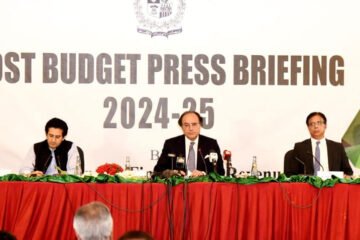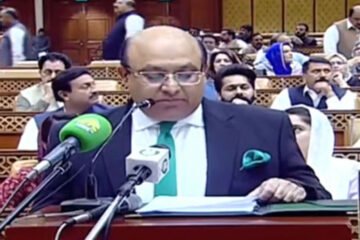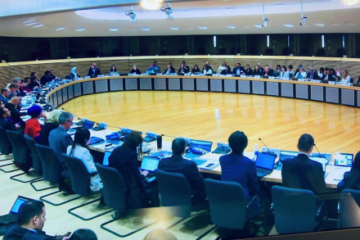Pound slips more as Johnson eyes poll to break Brexit logjam
Hong Kong, Oct 25 (AFP/APP): Sterling extended losses Friday owing to renewed Brexit uncertainty after Boris Johnson proposed a general election to resolve the long-running saga, while Asian markets were mixed after a broadly positive week.
With the prime minister giving up on a pledge to leave the EU by his Halloween deadline, he called for a December 12 national vote that would likely give his Conservative party enough MPs to eventually pass the agreement.
However, opposition lawmakers have said they will only vote for a snap poll if they are guaranteed Britain will not leave the EU without a deal, meaning there is a good chance his election bid will fail.
MPs will decide Monday on whether to agree to the election, just as the European Union is due to announce a three-month extension to the deadline.
The pound, which this week broke $1.30 for the first time in five months on optimism a no-deal Brexit will be avoided, went into retreat Thursday and was stuck around $1.240 on Friday. It was also down against the euro.
Sterling softens as more Brexit votes loom
“A sense of rational optimism around Brexit has given way to more uncertainty as to the pound, and UK risk markets were roiled” by the prospect of an election, said AxiTrader analyst Stephen Innes.
He added that a national vote would amount to a referendum on Johnson’s Brexit strategy.
But OANDA senior market analyst Jeffrey Halley said that while sterling was lower “the mild sell-off will probably give way to optimism that a hard Brexit is almost off the table, and that Parliament’s three-year impasse could soon be history”.
Equity markets were fluctuating through the morning as investors keep an eye on the events in Westminster, while also awaiting the latest developments in the China-US trade talks.
Optimism that the two economic superpowers will hammer out details for a mini agreement by next month have helped support equities this week.
There remain concerns that the talks could be derailed at the last minute, with the passage of a US bill defending civil rights in Hong Kong the latest bump in the road.
The law would end the Hong Kong-US special trading status unless the State Department certifies annually that city authorities are respecting human rights and the rule of law.
Senators are due to agree to the legislation, following their colleagues in the House of Representatives, but China has threatened to retaliate if it becomes law.
Adding to the mix were comments from Vice President Mike Pence, who vowed support for Hong Kong pro-democracy protesters and hit out at China’s trading behaviour.
Republicans storm secure impeachment deposition
“The real catalyst for rising US-China risk is the senate vote of the Hong Kong bill. China has already said it will retaliate once the bill is passed,” said Rodrigo Catril at National Australia Bank.
However, he did point out that in the past “the US and China have isolated issues from the broader tariff negotiation, Huawei for example”.
“While the Hong Kong issue is exponentially larger than Huawei, until more clarity unfolds this could be compartmentalised away from trade talks along with the growing laundry list of US grievances against China.”
Shanghai rose 0.5 percent while Tokyo ended up 0.2 percent at a one-year high, with Sydney gaining 0.7 percent, Singapore adding 0.5 percent and Seoul 0.1 percent higher.
But Hong Kong dipped 0.2 percent, while there were also losses in Taipei, Wellington, Manila, Mumbai, Bangkok and Jakarta.
London opened flat, Frankfurt rose 0.1 percent and Paris put on 0.3 percent.











